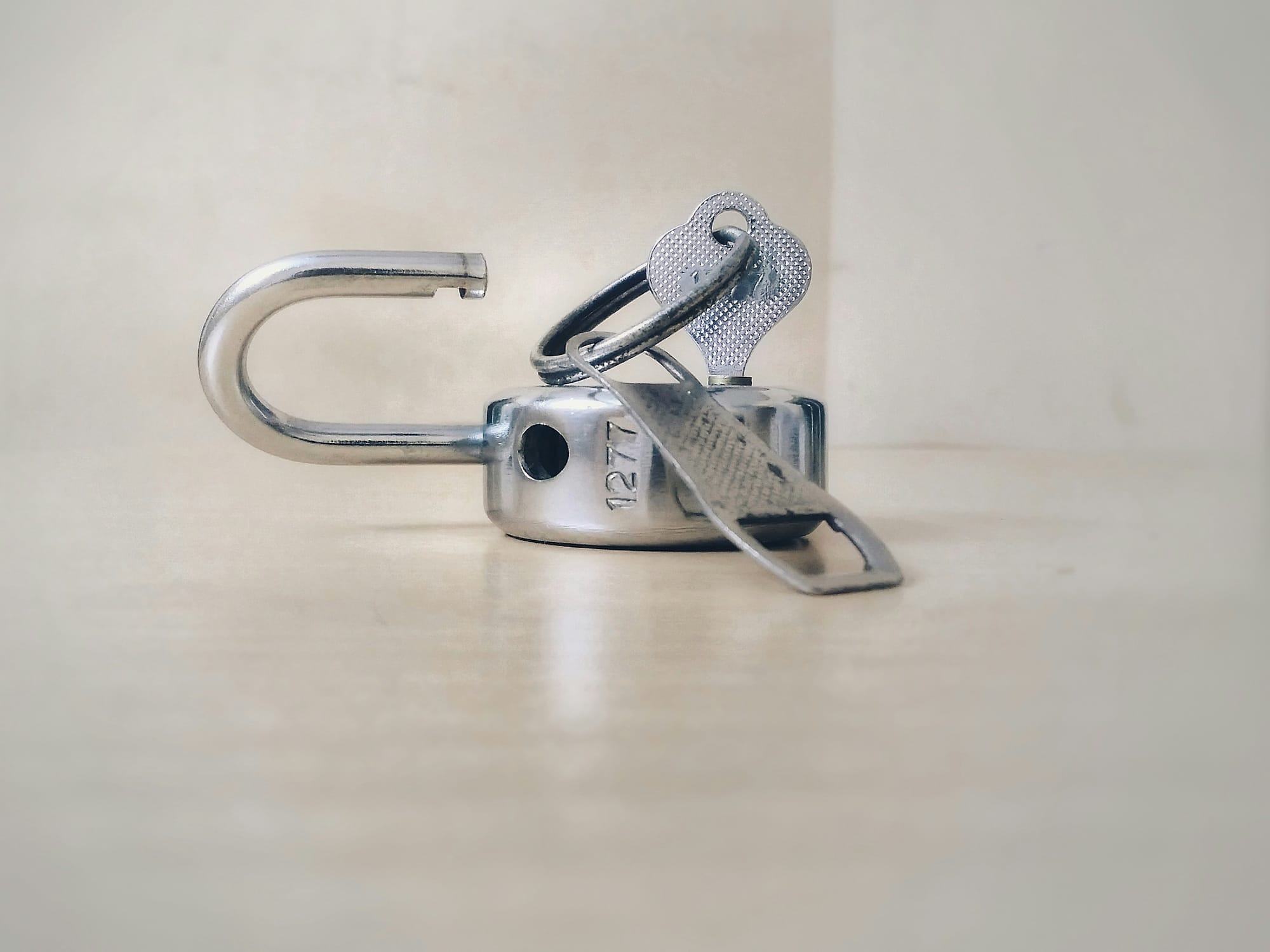Your ultimate Conversion Rate Optimization checklist
As online businesses grow, conversion rate is one of the key metrics to keep track of. Making sure your website visitors convert into customers is critical. Whatever industry you’re in.
But improving conversion rates isn’t just about offering great products or services. You also need to optimize the whole user experience. This will help to keep customers moving through your sales funnel.
We’ve created the ultimate conversion rate optimization (CRO) checklist. This will help you meet your conversion goals. Our guide gives you advice and practical strategies that you can use to boost your conversion rates.
What is Conversion Rate Optimization?
Conversion Rate Optimization is often referred to as CRO. It’s the process of improving conversion rates across your website.
It’s how you can boost the percentage of people who take a desired action on your site. This could be making a purchase, signing up for a newsletter, or filling out a contact form.
Optimizing your website for conversions involves making small changes across your site. The goal is to create an engaging experience for your users.
These small changes can lead to significant increases in conversion rates. And those increases can then directly impact your revenue!
Why does Conversion Rate Optimization matter?
Conversion rate optimization is important for several reasons:
- Increased revenue. A higher conversion rate means more sales from the same amount of traffic - which directly contributes to your revenue.
- Lower Customer Acquisition Costs (CAC). By improving conversions, you can maximize the value of your existing traffic. This reduces the need to spend on ads or other paid marketing efforts.
- Improved User Experience (UX). CRO focuses on understanding user behavior. Which ultimately leads to a more satisfying experience for your visitors.
A simple formula for CRO success
We can break down your CRO efforts into a simple formula:
Conversion Rate = (conversions / total visitors) * 100
By improving your conversion rate, you are increasing the number of visitors who convert into paying customers. Which means you don’t need to spend time and money generating additional traffic to your website.
The ultimate Conversion Rate Optimization checklist
This checklist covers all aspects of conversion rate optimization. From understanding user behavior to refining your landing pages.
Whether you're just starting, or have already implemented some CRO strategies, you can use this guide to help you.
1. Set clear conversion goals
Before starting the optimization process, you need to establish clear and measurable goals. What do you want to achieve? What constitutes a conversion for your business? Is it a completed sale, a sign-up, a download, or something else?
Top Tip: break down your conversion goals into SMART goals. Make them:
- specific
- measurable
- achievable
- relevant
- time-bound
This ensures that you're not just improving the conversion rate, but also aligning it with your business objectives.
2. Analyze user behavior with analytics
Understanding how users interact with your website is the first step in improving your conversion rate. Track visitors' behavior and identify potential blockers in the conversion funnel. Use tools like Google Analytics and Hotjar to help you.
Top Tip: look for patterns in your data. Are there specific pages where users drop off? Are certain elements of your website receiving high engagement? Use this data to identify areas that need improvement.
3. A/B testing for landing pages and CTAs
A/B testing is one of the best ways to determine which changes result in higher conversion rates. Start with the most critical elements on your landing page, such as the headline and CTA button.
Top Tip: run A/B tests on multiple elements. This will show you which combination drives the highest conversion rate. Always test one element at a time for the most accurate results.
4. Optimize your landing page design
The design of your landing page is one of the first things that visitors notice. And it plays a significant role in their decision to convert. A well-designed page should be clean, visually appealing, and free from distractions.
Top Tip: simplify your landing pages. Use clear headings, concise text, and high-quality images or videos. Make sure your CTA stands out and is easy to find.
5. Improve page load speed
A slow-loading website can harm your conversion rate.
Did you know? Users are less likely to convert if a page takes more than three seconds to load. Ensuring that your website is optimized for speed is crucial step in CRO.
Top Tip: use tools like Google PageSpeed Insights or GTmetrix to identify elements that are slowing down your website.
For faster delivery:
- Compress images
- Enable caching
- Consider a content delivery network (CDN)
6. Craft compelling Calls to Action (CTAs)
Your CTA is one of the most important elements of your website. It guides users towards completing the desired action. A vague or weak CTA can drastically lower your conversion rate.
Top Tip: make your CTA button clear, action-oriented, and time-sensitive. Use persuasive language, such as
- “Get Started Now”
- “Claim Your Offer”
- “Join for Free”
7. Leverage social proof and trust signals
People tend to follow the crowd, especially when they’re unsure about making a purchase. Social proof, can significantly boost your conversion rate.
Social proof includes things like:
- customer testimonials
- user reviews
- case studies
- trust badges
Top Tip: display customer reviews early on product pages. Use trust signals like SSL certificates and secure payment options. This will help to reassure your visitors.
8. Look after your mobile users
Mobile traffic is continuing to increase, so it’s critical that your website is optimized for mobile devices. A site that isn’t mobile-friendly will frustrate your users. It can lead to a higher bounce rate, which hurts conversions.
Top Tip: use a responsive web design to ensure your website is easy to navigate on mobile devices. Test your website on various screen sizes and devices to identify any issues.
9. Simplify the checkout process
For e-commerce sites, the checkout process is often the final hurdle that prevents users from converting. A complicated or lengthy checkout process can cause customers to abandon their cart.
Top Tip: minimize the number of steps in the checkout process. Offer guest checkout options and make sure the process is simple and straightforward.
10. Create personalized experiences
Personalization is a powerful tool in conversion rate optimization. You can easily increase conversion rates by tailoring content and offers to individual users. You can personalize based on behavior, preferences, and demographics.
Top Tip: use ConversionWax to add dynamic content on your website. Display personalized offers, product recommendations, or messages based on user activity.
11. Focus on high-intent traffic
Not all website visitors are the same, and some are more likely to convert than others. High-intent traffic is users who have searched for specific keywords or visited your site multiple times.
Top Tip: use targeted ads and remarketing strategies to bring back high-intent visitors. Create tailored landing pages for these visitors to increase the chances of conversion further.
12. Reduce distractions and remove unnecessary elements
Too much clutter or too many options can overwhelm visitors and decrease your chances of conversion. Keep the focus on the desired action and remove elements that don’t directly contribute to that goal.
Top Tip: use a minimalist approach to design. Ensure that the page focuses solely on guiding users to the CTA without distractions.
13. Address your customers’ pain points
Understanding your customers' pain points and objections is important. It can help you create content that addresses these concerns. Make sure you're answering common questions before they arise. Whether it's through FAQs, product descriptions, or customer support chat.
Top Tip: create product pages that answer common questions. Address potential concerns, and highlight the product benefits. Use copy that focuses on how your product solves specific problems for the user.
Conclusion
The process of conversion rate optimization is ongoing. It requires continuous testing, analysis, and refinement. Use this conversion rate optimization checklist to give you a structured approach to CRO.
Remember that even small changes can yield big results. And consistently optimizing your website can make a significant impact on your business's bottom line.
Focus on your goals. Analyze user behavior. And implement strategies that align with your audience's needs and expectations.
Transform your website into a high-converting powerhouse. One that not only attracts traffic, but gains you loyal customers.
-

Unlock the benefits of website personalization
-

E-commerce conversion best practices
-

Your ultimate Conversion Rate Optimization checklist
-

How to: complete a Conversion Rate Optimization audit
-

An easy guide to ecommerce website optimization
-

Your guide to Conversion Rate Optimization best practices
-

Landing page optimization - maximizing your conversions
-

Website performance optimization techniques to boost your online business
-

Benefits of website personalization for online businesses
-

How to improve your ecommerce checkout conversion

